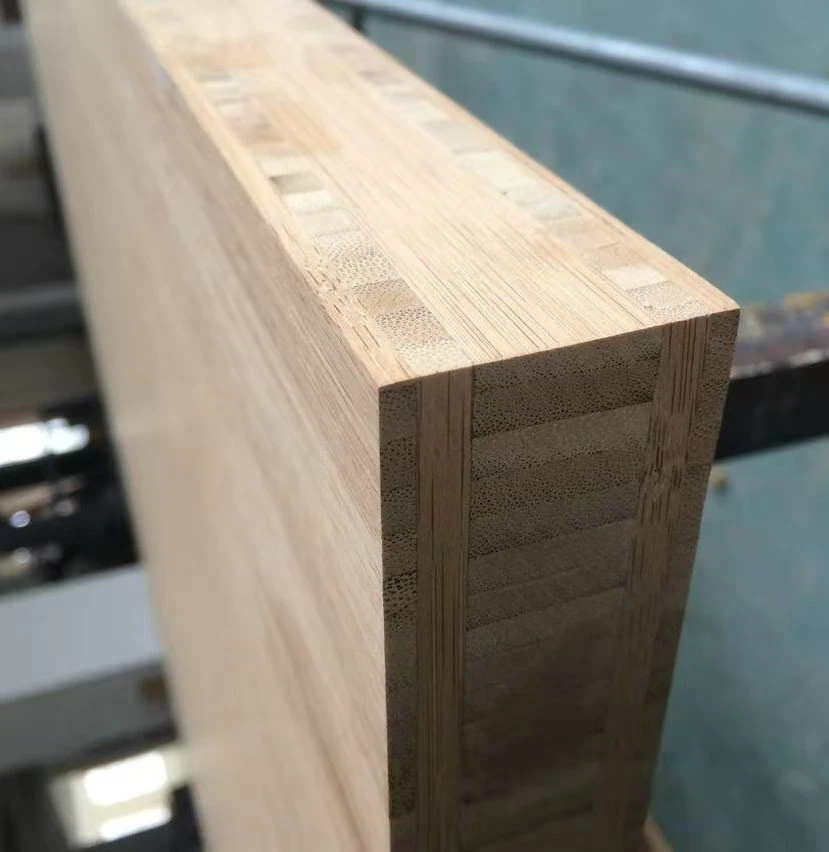
Product Name | Bamboo Worktop | |||
Model | ZB-BW001 | |||
Material | Natural Bamboo | |||
Size | 2440*1220*38mm(96''*48''*1.5'')or custom | |||
Weight | 700kg/m³ | |||
MOQ | 50pcs | |||
Moisture | 8% | |||
Packing | Standard export packaging(safe and most economical) 1pc/polybag or box, then carton or custom | |||
Delivery Time | After payment, 1.sample lead time:2-3days 2.Mass production for current size: 15-20days 3.Mass production for new size:25-30days | |||
Payment | Current model 30% deposit, 70% balance against BL copy, new mould 50% deposit, 70%balance against BL copy(≥10000USD) | |||
Port | Ningbo or Shanghai | |||
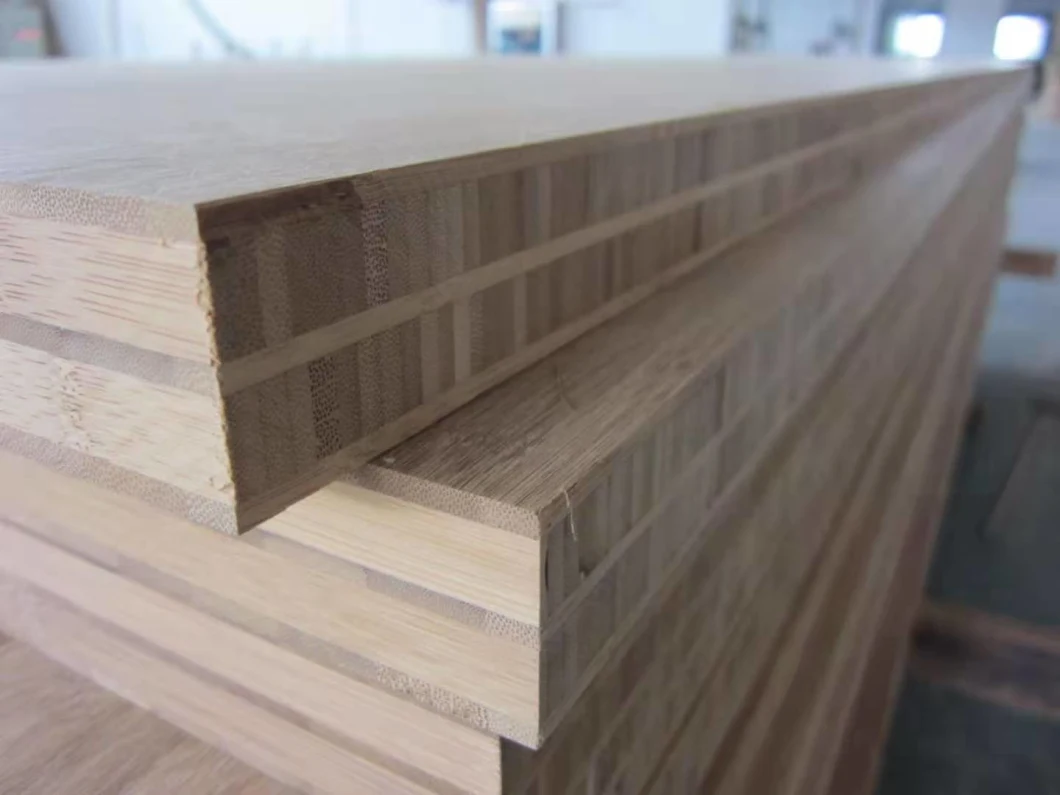
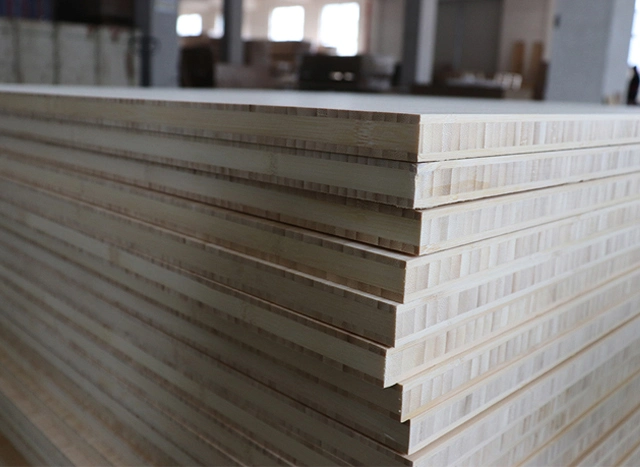
Our Bamboo Countertop
*Food Safe & naturally anti-bacterial
*Eco-friendly & manufactured from rapidly renewable 100% Bamboo
*DIY friendly, Bamboo countertops cut, stain & seal easily just like solid wood
*Bamboo countertops have a high moisture tolerance
*Eco-friendly & manufactured from rapidly renewable 100% Bamboo
*DIY friendly, Bamboo countertops cut, stain & seal easily just like solid wood
*Bamboo countertops have a high moisture tolerance
Why Bamboo Countertops?
Bamboo Countertops are supplied in their natural, raw and unfinished state. Made of 100% rapidly renewable Bamboo it is also exceptionally durable - Our Bamboo Countertops are square edged, are of architectural grade Bamboo and can thus be cut joined, machined, sanded and sealed using conventional woodworking equipment or methods. The Bamboo Countertops can be used in a wide range of applications from kitchen countertops, bars, cupboards and furniture making. The stability of Bamboo makes it a great choice for DIY installations and works well with other modern finishes like glass, steel and aluminum. In addition to high resistance to water damage or scorching Bamboo Countertops tend not to swell, shrink or crack easily. We therefore always recommend sealing when used in kitchens and bathrooms. Simply seal the board with a polyurethane finish or environmentally friendly, natural oil or water-based product. Check your local hardware store for a wide range of sealants available in matt or gloss finish.
Different Grain&Colors
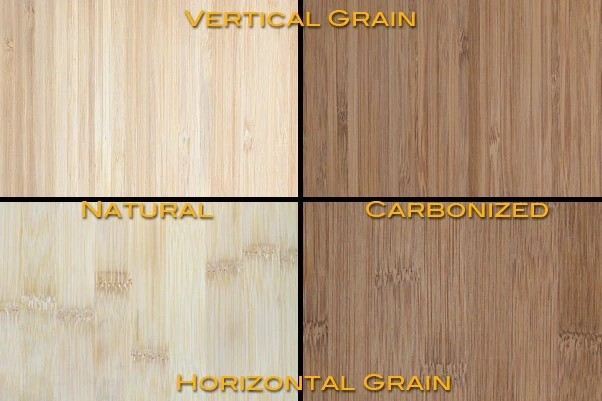
Multi-purpose Kitchen Top
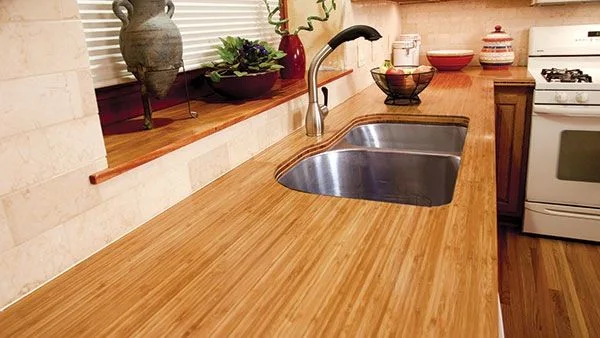
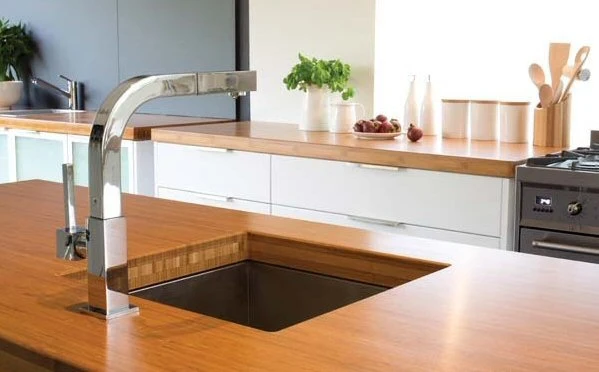
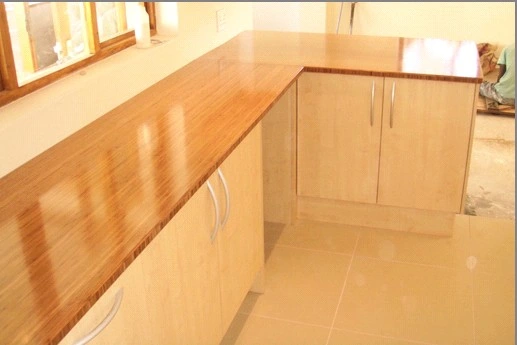
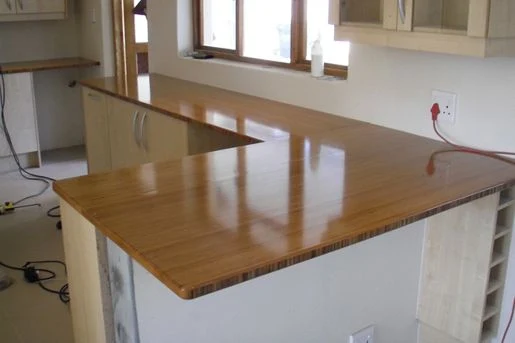
Packing&Loading
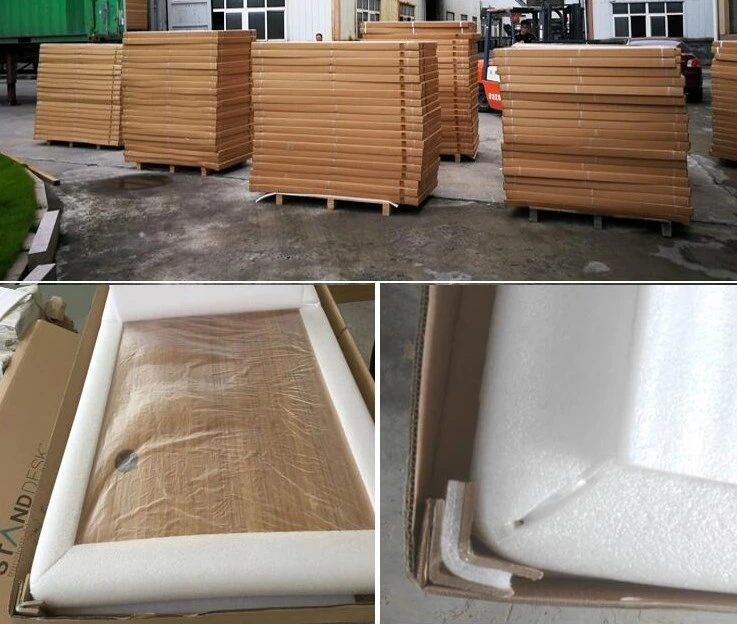

We are Bamboo Plywood and Veneer Factory!
Zen Bamboo was founded in 2001 and is specialized in manufacturing of bamboo veneer and bamboo plywood in China. Our main products are bamboo veneer, panels, countertops, beam and lumbers, bamboo round tube, accessories, and allied bamboo products. Our factory is conveniently located in the beautiful city of Hangzhou, the capital of Zhejiang Province.
Zen Bamboo is derived from Zen Buddhism culture and bamboo culture, Integrally involved in Asian culture and the arts over centuries, bamboo is a mystical plant that is symbol of strength, flexibility, tenacity, courage and resilience. It is also considered good Feng Shui for home, health & happiness in China.
Zen Bamboo products have been sold to Japan, Australia ,Europe and North American in past 15 years. Zen Bamboo products are gaining popularity and growing at a rapid rate in Europe and US markets. Today, Zen Bamboo continues to work jointly with its clients to more fully develop the bamboo markets throughout the world.
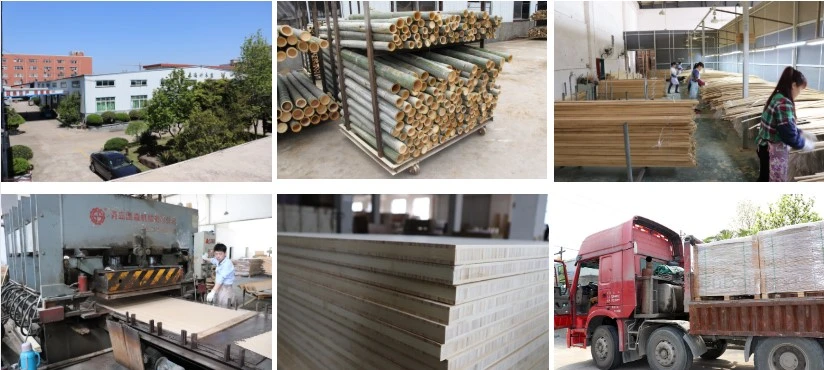
Zen Bamboo Application
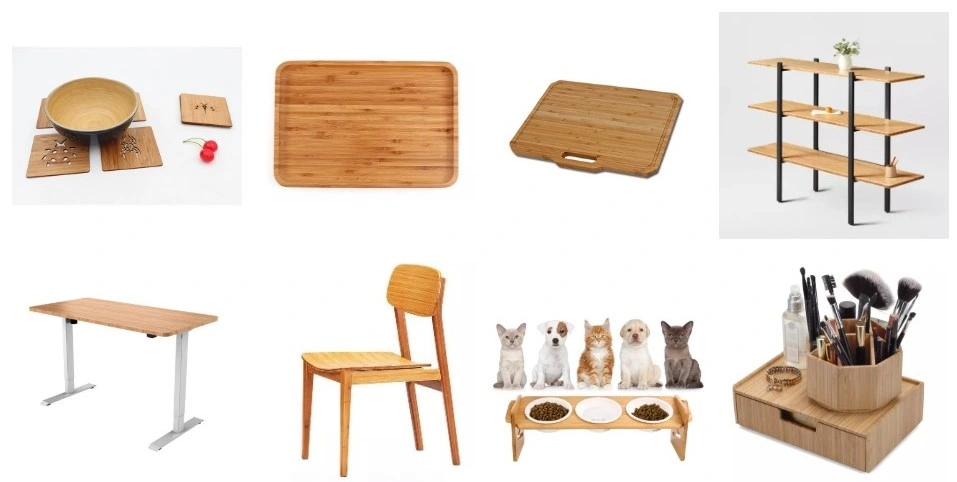
FAQ
1. Why bamboo?
Bamboo is an environmentally friendly sustainable grass which replenishes itself approximately four years. it has excellent characteristics pertaining to its hardness and durability. in addition, it offers a new unique look desired by many discriminating customers around the world.
2. Why Zen Bamboo is superior than most bamboo floors sold on market?
Several bamboo floors on the market may look alike, but in terms of quality, they are quite different, the quality of Zen Bamboo floors is the result of the care given in the selecting bamboo material, the manufacturing of boards and the finishing of their surface.
3. What about the adhesives used for the lamination of Zen Bamboo Products?
Zen Bamboo use the high quality European adhesives for all its products. It has the lowest formaldehyde emissions in the industry and exceeds the strict European E1 standard for indoor air quality.
4. What does " Carbonized" mean?
Carbonization is a process of pressure heating the fiber. This process turns the natural color into beautiful caramel color. The longer it is heated, the darker the sugar compounds in the fiber become.
5. What is the difference between horizontal grain and vertical grain?
The Horizontal grain presents as quite visually "open" with the nodes, The Vertical grain is more dense in appearance. The choice is matter of style with consumer interest in each type being about equal.
6. If bamboo is so plentiful, then why does bamboo flooring cost as much as high quality oak flooring?
In the western world, bamboo has a low cost reputation because of its use in familiar items such as handicrafts, bamboo baskets, chopsticks, mats and fences. However, bamboo flooring is a laminate requiring many labor-intensive steps and specialized equipment to produce it. It is"manufactured" or "engineered" to an extent that wood flooring is not.
Bamboo is an environmentally friendly sustainable grass which replenishes itself approximately four years. it has excellent characteristics pertaining to its hardness and durability. in addition, it offers a new unique look desired by many discriminating customers around the world.
2. Why Zen Bamboo is superior than most bamboo floors sold on market?
Several bamboo floors on the market may look alike, but in terms of quality, they are quite different, the quality of Zen Bamboo floors is the result of the care given in the selecting bamboo material, the manufacturing of boards and the finishing of their surface.
3. What about the adhesives used for the lamination of Zen Bamboo Products?
Zen Bamboo use the high quality European adhesives for all its products. It has the lowest formaldehyde emissions in the industry and exceeds the strict European E1 standard for indoor air quality.
4. What does " Carbonized" mean?
Carbonization is a process of pressure heating the fiber. This process turns the natural color into beautiful caramel color. The longer it is heated, the darker the sugar compounds in the fiber become.
5. What is the difference between horizontal grain and vertical grain?
The Horizontal grain presents as quite visually "open" with the nodes, The Vertical grain is more dense in appearance. The choice is matter of style with consumer interest in each type being about equal.
6. If bamboo is so plentiful, then why does bamboo flooring cost as much as high quality oak flooring?
In the western world, bamboo has a low cost reputation because of its use in familiar items such as handicrafts, bamboo baskets, chopsticks, mats and fences. However, bamboo flooring is a laminate requiring many labor-intensive steps and specialized equipment to produce it. It is"manufactured" or "engineered" to an extent that wood flooring is not.